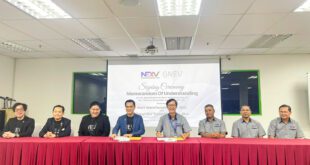U.S. Army to Test Hydrogen Technology for Energy Resilience
The U.S. Army has partnered with the Construction Engineering Research Laboratory (CERL) to test new hydrogen technology that will make its installations less vulnerable to hazards and risks. Nel Hydrogen will build electrolyzers that will produce hydrogen to be used as clean fuel during emergencies. Once the technology is completed, the electrolyzer will be shipped to CERL for testing.
Lowering the Cost of Electrolyzer Technology
The primary objective of the project is to reduce the cost of the membrane and catalyst electrode assemblies (MEA), a core component of electrolyzers. Lowering the cost of MEAs will make hydrogen and electrolyzer technology more economically feasible and competitive in the United States.
At present, the capital cost of electrolyzer technology can be twice the targets for large-scale energy applications, and this cost must be significantly reduced to make it economically feasible. The U.S. Army aims to use the electrolyzer technology regularly, and demonstrating its performance will be one of the key steps in integrating the technology into Army missions.
The Army also plans to implement this technology to increase energy resilience during emergencies. The current requirement for the Army is to have 14 days of uninterrupted mission critical operations during emergencies. Hydrogen is an efficient fuel that can provide emergency backup power for 14 days when traditional power sources like electricity and natural gas fail.
Meeting Energy Demands with Hydrogen
The U.S. Army is evaluating hydrogen as a Department of Defense fuel option to provide clean and efficient fuel, which could increase energy security and resilience. Hydrogen can mesh with wind and solar technology that is currently used by the Army, and is expected to become an excellent alternative energy source.
Testing hydrogen technology
The technology is being built at Nel facility and will be sent to CERL for testing in a few months’ time. Once testing commences, the Army will determine how hydrogen technology can provide clean and efficient fuel and help make their installations less vulnerable.
This exciting development in efficient and low-cost hydrogen production research could improve the nation’s competitiveness in the global energy market, said Nick Josefik, an industrial engineer at CERL.
 Mind Uncharted Explore. Discover. Learn.
Mind Uncharted Explore. Discover. Learn.

